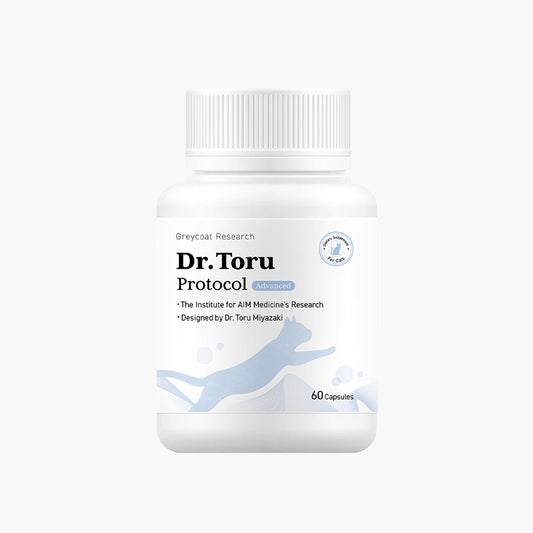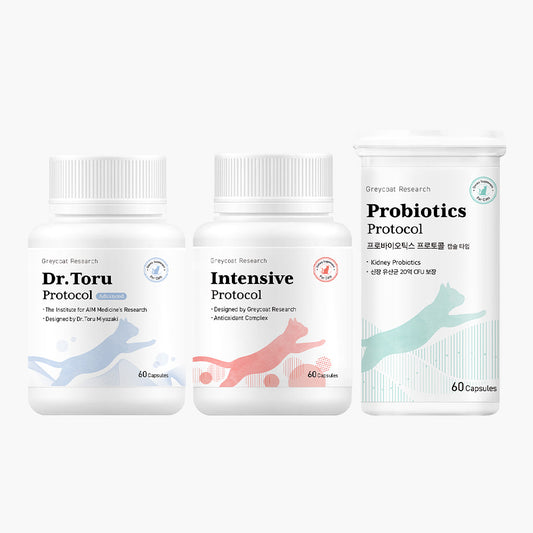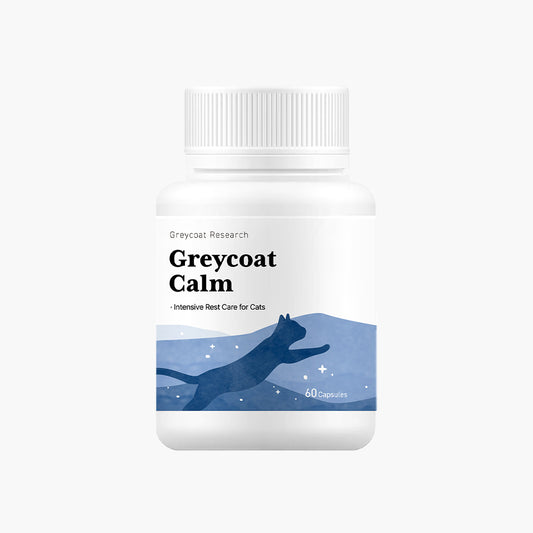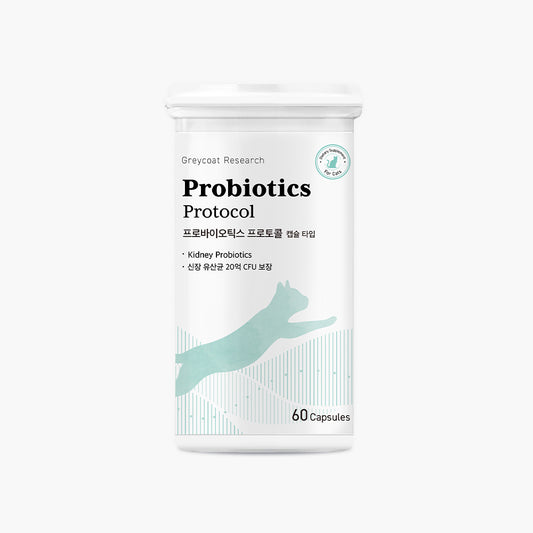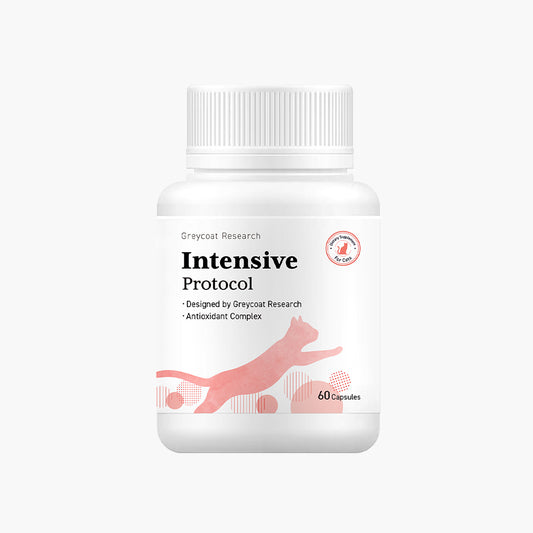
Lernen Sie die heutige Katze kennen!
- Name: Eli
- Alter: 10 Jahre
- Geschlecht: Männlich (kastriert)
- Gewicht: 7,14 kg (15,7 lbs)
- Blutwerte: 4,6 (Kreatinin), 74 (Harnstoff/BUN), 26,4 (SDMA)
- Anmerkungen: Eli hat eine chronische Nierenerkrankung im Stadium 3 und wurde kürzlich erfolgreich an der Lunge operiert, um eine Raumforderung zu entfernen.
Pflegeperson
Meine Katze Eli musste operiert werden, weil der Tierarzt eine Raumforderung in seiner Lunge entdeckt hatte.
Zum Glück war die Operation ein Erfolg, und Eli erholt sich bisher größtenteils gut.
Das einzige Problem ist, dass bei ihm seitdem eine chronische Nierenerkrankung (CKD) diagnostiziert wurde.
Seine Nierenwerte haben sich in den letzten Monaten deutlich verschlechtert.
Im Juni lagen seine Werte noch bei:
– Kreatinin: 3,7
– BUN: 56
– SDMA: 22,8
Jetzt sind sie:
– Kreatinin: 4,6
– BUN: 74
– SDMA: 26,4
In letzter Zeit schläft er auch deutlich mehr.
Ein kleiner Trost ist, dass er beim Fressen immer noch „jagt“ – also sich zumindest dafür aktiv interessiert.
Ich bin für jeden Ratschlag dankbar, wie ich Eli bei der Behandlung seiner CKD unterstützen kann.
Greycoat Research
Vielen Dank, dass Sie uns Elis Informationen zur Verfügung gestellt haben.
Wir sehen, dass sich seine Nierenwerte kontinuierlich verschlechtern.
Es macht uns traurig zu hören, dass Eli leidet – und wir setzen alles daran, ihm zu helfen, sich besser zu fühlen.
Ein Rückgang der Nierenfunktion nach einer Operation ist leider keine Seltenheit.
Wir haben ähnliche Fälle bereits bei vielen Katzen gesehen, die eine Beratung bei uns in Anspruch genommen haben.
Ironischerweise kann eine Operation bei Katzen zu einer Verschlechterung des Allgemeinzustands führen – in Fällen wie bei Eli sogar zur Entwicklung oder zum Fortschreiten einer CKD.
Das liegt daran, dass ihre Nieren oft die bei Operationen eingesetzten Medikamente nicht ausreichend verarbeiten können.
Angesichts von Elis aktuellen Nierenwerten werden Nahrungsergänzungsmittel allein nicht ausreichen.
Unsere Produkte – der AIM Dr. Toru Protocol und der Intensive Protocol – können Eli helfen, indem sie seine geschwächte Nierenfunktion gezielt unterstützen.
Allerdings gibt es Grenzen, wie viel allein mit Supplements erreicht werden kann.
Aufgrund des erhöhten BUN-Werts empfehlen wir Ihnen dringend, mit Ihrem Tierarzt Rücksprache zu halten, ob subkutane Flüssigkeitstherapie begonnen werden kann.
Wenn Sie uns Elis aktuelles Gewicht sowie eine Liste der derzeit verwendeten Nahrungsergänzungsmittel mitteilen, erstellen wir Ihnen gerne einen individuell abgestimmten Management-Plan für ihn.
Pflegeperson
Eli wiegt 7,14 kg (15,7 lbs). Zurzeit bekommt er Omega-3-Öle, Phosphatbinder, Probiotika sowie ein flüssiges Antioxidans-Öl.
Greycoat Research
Bei Nahrungsergänzungsmitteln kommt es nicht nur auf die enthaltenen Inhaltsstoffe an, sondern ebenso auf die richtige Verabreichung und Dosierung.
Gerade bei einer Katze wie Eli, die sich noch von einer Operation erholt, ist besondere Vorsicht geboten.
In einem so empfindlichen Zustand wie Elis ist ein besonders schonender und sorgfältiger Umgang entscheidend.
Wie bereits erwähnt, können unsere Produkte Elis Nierenfunktion gezielt unterstützen.
Daher empfehlen wir, sowohl den AIM Dr. Toru Protocol als auch den Intensive Protocol zur Behandlung seiner CKD zu verwenden.
Sollten Sie sich für die Verabreichung unserer Produkte entscheiden, raten wir Ihnen jedoch, das derzeit verwendete flüssige Antioxidans-Öl abzusetzen.
Obwohl dieses Produkt nützliche Substanzen enthält, die Eli helfen können, kann eine übermäßige Zufuhr im aktuellen Zustand mehr Schaden als Nutzen verursachen.
Omega-3-Öle und Phosphatbinder hingegen können weiterhin gegeben werden.
Da Eli über 3 kg (6,6 lbs) wiegt, liegt die empfohlene Dosis von AIM Dr. Toru Protocol bei 2 Kapseln pro Tag.
Da er sich jedoch noch in der Erholungsphase nach seiner Operation befindet, empfehlen wir, zunächst mit einer kleineren Menge zu beginnen:
Geben Sie ihm in der ersten Woche täglich nur eine halbe Kapsel und beobachten Sie seine Reaktion.
Ideal ist die Verabreichung während oder direkt nach dem Fressen.
Wenn keine Auffälligkeiten auftreten, kann die Dosis in der darauffolgenden Woche schrittweise bis zur empfohlenen Tagesmenge von 2 Kapseln erhöht werden.
Beim Intensive Protocol liegt die empfohlene Dosis bei 1 Kapsel täglich – unabhängig vom Gewicht.
Dieses Produkt kann von Anfang an in voller Dosis gegeben werden.
Darüber hinaus möchten wir auf einen weiteren wichtigen Punkt hinweisen:
Gewichtsverlust ist für CKD-Katzen extrem gefährlich.
Gerade bei einer Katze wie Eli besteht das Risiko, dass er seinen Appetit verliert und die Nahrungsaufnahme verweigert.
Bitte achten Sie sorgfältig darauf, dass er regelmäßig frisst, um sein Gewicht zu halten.
So schwer es auch fallen mag – im Zweifelsfall kann es notwendig sein, Eli das Futter gegen seinen Willen zu verabreichen.
Pflegeperson
Vielen Dank für die ausführlichen Informationen!
Sobald unsere Bestellung vom AIM Dr. Toru Protocol ankommt, werden wir das Antioxidans-Öl absetzen.
Kann ich Eli alle seine Nahrungsergänzungsmittel gleichzeitig geben, oder sollte ich das AIM Dr. Toru Protocol zeitlich getrennt von den anderen Präparaten verabreichen?
Greycoat Research
Omega-3 kann die Verdauung Ihrer Katze belasten. Daher empfehlen wir, zwischen der Gabe von Omega-3-Präparaten und dem AIM Dr. Toru Protocol einen Abstand von 1 bis 2 Stunden einzuhalten.
Wenn Sie Eli Probiotika vor dem Fressen geben, sollten Sie ihm das AIM Dr. Toru Protocol nach der Mahlzeit verabreichen.
Das Intensive Protocol hingegen kann problemlos zusammen mit dem AIM Dr. Toru Protocol gegeben werden. Es kann auch unabhängig von der Fütterungszeit allein verabreicht werden – egal ob Eli schon gefressen hat oder nicht.
Wir empfehlen jedoch, zwischen der Gabe des Intensive Protocol und anderen Präparaten oder Medikamenten mindestens 10 Minuten Abstand zu lassen, um Elis Magen nicht zusätzlich zu belasten.
Pflegeperson
Unser Tierarzt möchte zusätzlich Phosphatbinder ins Futter mischen, daher informieren wir uns derzeit darüber.
Sind Ihre Nahrungsergänzungsmittel auch in Kombination mit Phosphatbindern unbedenklich?
Greycoat Research
Genau wie bei Omega-3-Präparaten können auch Phosphatbinder Elis Verdauung belasten.
Deshalb empfehlen wir, zwischen der Gabe von Phosphatbindern und dem AIM Dr. Toru Protocol einen Abstand von 1 bis 2 Stunden einzuhalten.
Ein täglicher Verabreichungsplan für Eli könnte zum Beispiel folgendermaßen aussehen:
|
Morgens
|
|
Abends
|
Pflegeperson
Alles klar, verstanden.
Greycoat Research
Angesichts von Elis aktuellen Nierenwerten scheint eine subkutane Flüssigkeitstherapie notwendig zu sein.
Aufgrund seiner kürzlich erfolgten Lungenoperation raten wir Ihnen jedoch dringend, zunächst einen Bluttest durchführen zu lassen und mit Ihrem Tierarzt Rücksprache zu halten, bevor Sie mit der Therapie beginnen.
Wenn Sie weitere Fragen haben oder Unterstützung benötigen, zögern Sie bitte nicht, uns zu kontaktieren.
Wir helfen Ihnen gerne dabei, einen optimalen Pflegeplan zu erstellen, damit Eli weiterhin stabil bleibt und sich wohlfühlt!
Die Pflege einer Katze mit chronischer Nierenerkrankung (CKD) ist nie einfach. Sie erfordert langfristige, konsequente und engagierte Betreuung. Es gibt so viel zu beachten und zu überwachen. Und vor allem muss die Pflege sofort erfolgen, um zu verhindern, dass sich Probleme verschlimmern. Wenn sich die Nieren verschlechtern, führt das zu vielen weiteren Problemen, die wiederum die Nieren weiter schädigen – ein Teufelskreis des Nierenversagens.
Im Fall von Eli jedoch kann eine Operation die Situation verkomplizieren. Wenn man versucht, eine Nierenbehandlung bei einer Katze durchzusetzen, die sich noch von einer Operation erholt, kann das nach hinten losgehen und mehr Schaden als Nutzen bringen. Aus diesem Grund rät Greycoat Research Betreuern, ihre Katzen nach einer Operation genau zu beobachten und gemeinsam mit dem Tierarzt den schnellsten, aber auch sichersten Zeitpunkt zu bestimmen, um die notwendige CKD-Behandlung zu beginnen.
Alle Beratungen von Greycoat Research sind speziell darauf ausgelegt, einzelnen Katzen und ihren Betreuern zu helfen. Keine zwei Katzen sind gleich, und viele Faktoren beeinflussen, welche Zeit und Mittel einem Betreuer zur Verfügung stehen. Deshalb arbeiten wir eng mit allen Betreuern zusammen, um eine Liste von Nahrungsergänzungsmitteln, einen Fütterungsplan und ein Protokoll zu erstellen, das optimal zur individuellen Situation ihrer Katze passt.
|
Greycoat Research bietet kostenlose, fachkundige Beratung für Katzenhalterinnen und -halter an, die Fragen zu unseren Nahrungsergänzungsmitteln und deren Anwendung haben – damit jede Katze die individuell abgestimmte Versorgung erhält, die sie braucht. Um wichtige Informationen für alle, die Unterstützung bei der CKD ihrer Katze suchen, leichter zugänglich zu machen, sammelt Greycoat Research derzeit Beratungsfälle und stellt sie öffentlich zur Verfügung.* *Alle personenbezogenen Daten, die zur Identifikation unserer Kundinnen, Kunden oder ihrer Katzen führen könnten, wurden zum Schutz der Privatsphäre entfernt. |

